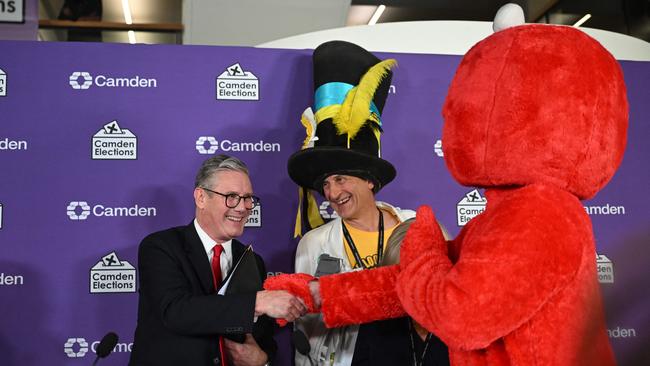Starmer’s to-do list ‘more a gigantic trunk of problems’
The Labour leader has six priorities to ‘change’ the UK following 14 years of Tory rule dominated by Brexit, a cost-of-living crisis and infighting.

Keir Starmer has a daunting in-tray when his Labour Party gets to work governing Britain after almost a decade and a half in opposition.
“It’s more a gigantic trunk of problems,” political scientist Karl Pike said, listing issues ranging from ending strikes in the state-run health service to negotiating a new post-Brexit deal with the EU.
Sir Keir, 61, has six priorities to “change” the UK following 14 years of largely chaotic Conservative rule dominated by Brexit, a crippling cost-of-living crisis and fratricidal infighting.
But implementing his so-called “first steps” will be far from easy due to a battered economy, public services that are on their knees and widespread disillusionment with the political establishment.
“Even the simpler, more straightforward commitments in the manifesto could still actually turn out to be harder to execute,” said Patrick Diamond, a former Downing Street policy adviser.
When Mr Diamond worked for the New Labour government of the early 2000s, Tony Blair and chancellor Gordon Brown benefited from healthy economic growth, boosting public coffers while keeping taxes low.
It allowed them to hit the ground running with several wide-ranging reforms at the same time as Mr Blair rode a wave of euphoria towards him and his centre-left party.
Today, growth is anaemic, with Labour’s victory arguably more born out of frustration with the Tories than overwhelming enthusiasm for Sir Keir’s party.
“It’s a very different environment,” Mr Diamond said. “The objective of having growth, low taxes and more public spending is just not going to be available to this Labour government.”
Labour has committed to the Conservatives’ spending plans and fiscal rules restricting debt to a share of GDP, limiting the amount it can borrow. It has also ruled out raising the main taxes paid by Britons, meaning investment will be heavily reliant on spurring unguaranteed economic growth.
“Although tax and borrowing are at historically high levels, and Labour’s pledges will constrain its room for manoeuvre, that will not prevent a new government from making significant changes to policy over time,” said Peter Sloman, a politics professor at Cambridge University.
Sir Keir’s top three priorities are to deliver economic stability, cut waiting times in the state-run National Health Service and launch a new border security force to tackle record levels of irregular migration. His other main pledges are to set up a publicly owned body investing in clean power called Great British Energy, crack down on antisocial behaviour and recruit 6500 new teachers.
“The ‘first steps’ are deliberately modest,” said Professor Sloman, noting that the promise on teachers and the pledge to create an extra 40,000 NHS appointments a week are “carefully worded to ensure they can be delivered”. “I think the bigger challenge ... will be dealing with growing crises in other parts of the public sector – such as prisons, higher education, social care, and local government – where a decade of austerity has created serious problems,” he said.
Sir Keir will also have to contend with a number of pressing foreign policy concerns, most notably continuing the UK’s lead of rallying Western support for Ukraine’s defence against Russia’s invasion.
Mr Pike noted that Sir Keir’s desire to negotiate a new trade deal with the EU, seen as crucial to his pro-growth plans, will be complicated by “potentially significant political uncertainty” among some of the major European countries, notably France.
Mr Diamond warned that “not getting completely blown away by events and creating the space to deliver on the manifesto” will be key to Labour’s start.
In that vein, Sir Keir’s chief of staff Sue Gray has reportedly drawn up a list of crises the new government could face early on.
It includes bankrupt local authorities, the potential collapse of a major water provider, overcrowding in prisons and universities going bust.
AFP



To join the conversation, please log in. Don't have an account? Register
Join the conversation, you are commenting as Logout